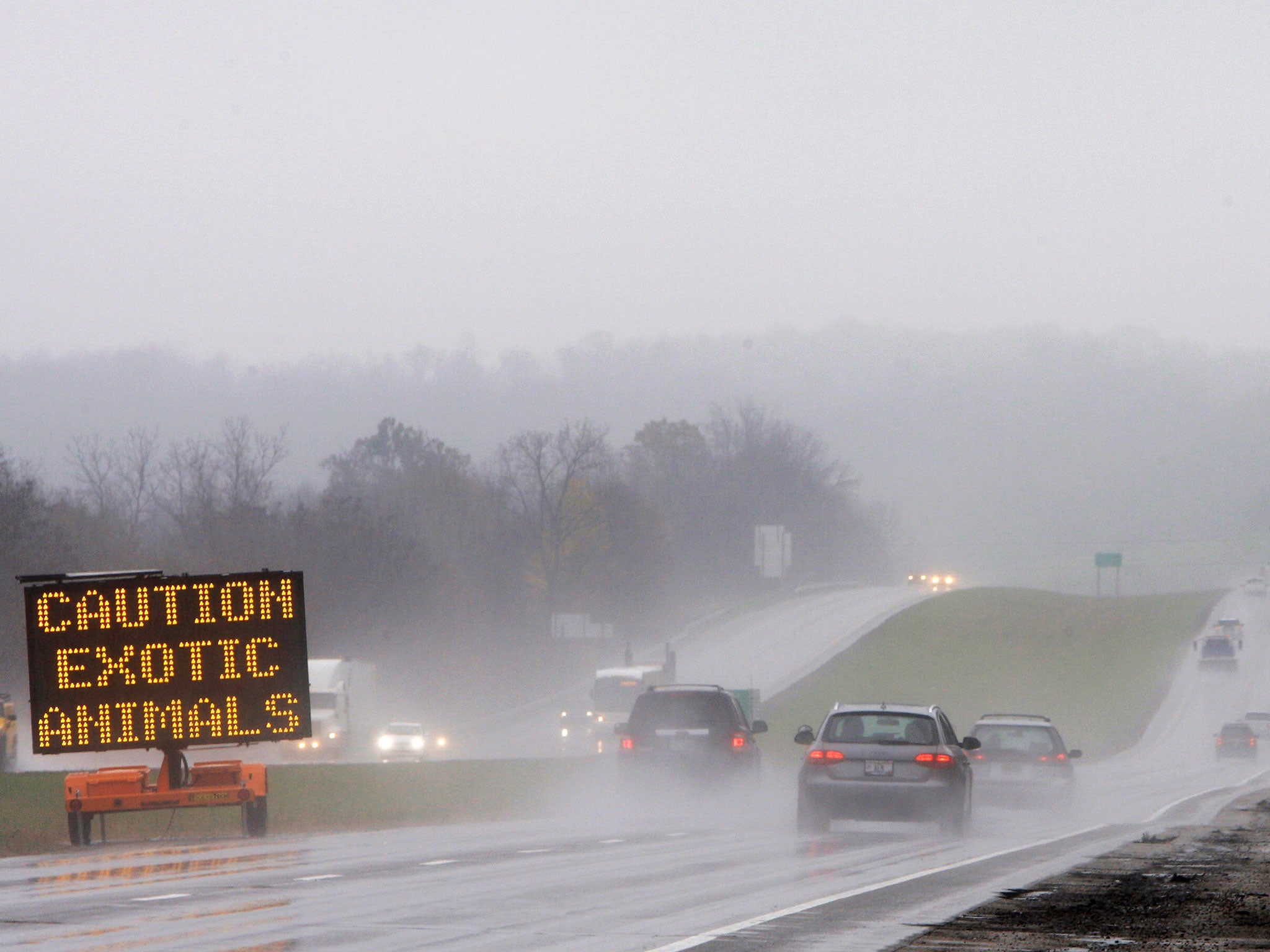Save the Tiger: The day America’s love of backyard tigers led to a horrific bloodbath
With only six per cent of the US population of these amazing big cats held in zoos, the Zanesville incident in 2011 was inevitable

By the time the local sheriff deputies arrived at the nature sanctuary outside of the small town of Zanesville, deep in the American Mid-West, the animals had already started to turn on each other. A monkey had been killed and bears and lions were starting to charge horses which had been kept at the reserve. Then officers spotted the Bengal tigers bounding across the plain towards the nearest freeway.
Until that evening, all the animals had been kept in enclosures at the Muskingum County Animal Farm, a private zoo in Ohio. But, that night, the site’s owner, Terry Thompson, who had a history of depression, shot himself. Before committing suicide, however, he opened all the cages to free the animals housed there.
“The animals were on the move and showing aggressive behaviour,” the local country sheriff Matt Lutz later said about the following carnage.
“There were some very close calls.” At times it was almost “hand to hand” combat as his officers put down the animals. Six black bears, two grizzlies, two wolves, one macaque monkey, one baboon, three mountain lions, nine male lions and eight lionesses were killed that night. However, for conservationists the greatest loss was the death of 18 Bengal tigers, one of the world’s rarest creatures. At one point a vet shot one of the tigers with a tranquilizer from 15 yards but that made it go “crazy”, the sheriff said, forcing it to be killed with real bullets.
That night in 2011 was the worst catastrophe for endangered wildlife in the United States in recent history. But what it did was focus attention on a situation that until then had been too easily ignored: the ease with which private individuals in America could keep exotic animals, particularly tigers, often in the most appalling conditions. Now a new law has been introduced into the US Congress, the Big Cats and Public Safety Protection Act, to ban the buying of new tigers by Americans other than at accredited zoos or wildlife sanctuaries. Those who violate the new rules would face upto five years in prison. John Kerry, the US Secretary of State, has been one of its most prominent backers. “It’s a little hard to believe that there’s a crazy patchwork of regulations governing people who try to keep wild cats as pets,” he said when the bill was submitted. “This bill will ensure that these endangered creatures are kept in secure, professional facilities like wildlife sanctuaries rather than in small cages in someone’s backyard or apartment building.”
In Pictures: Save the Tiger
Show all 9There are presently more tigers in the hands of private owners in America than there are left in the wild. Many of the estimated 5,000 in private hands are at present covered by no or inadequate laws to ensure their protection. In Ohio, for example, the regulations controlling the buying and selling of captive-bred species was almost non-existent at the time of the Zanesville tragedy.
Across the Unites States laws vary with each state from no restrictions, to simply requiring registration, to the banning in same ownership of the keeping of them as pets. This means only six per cent of the US tiger population resides in zoos and other facilities accredited by the Association of Zoos and Aquariums. In central Texas a 49-year-old women was found trying to sell tiger cubs outside her local Wall-Mart.
A recent audit by the USDA found tigers being kept in undersized, barren cages in people’s back yards, or being abandoned at sanctuaries when owners can no longer afford to keep them. Zoe Taft the director of the Exotic Feline Rescue Centre in Indiana, helps house some 225 big cats once kept as pets. “Most of the people who buy tigers are what you could call impulse buyers,” he warned. “People who say, ‘If I raise a cub, it won’t bite me, will it?’”
The new legislation, which is supported by organisations including the International Fund for Animal Welfare, Born Free USA and the Humane Society of the United States, has been shown in surveys to be backed by 75 per cent of Americans. If passed, a similar law is to be introduced in the Senate. “As the Zanesville incident showed, it’s critical for America to clear out captive big cats from people’s backyards,” said Leigh Henry, UN Species Policy Expert34 the for the WWF.
How to help:
Text: TIGER 70060 to make a £3 donation
Telephone: 0844 7360036
To adopt a tiger: bit.ly/WWFAdopt
To donate to WWF Russia: wwf.org.uk/protecttigers
This is a charity donation service. Texts cost £3 plus one message at your standard network rate (age 16+; UK mobiles only). The WWF will receive 100 per cent of your £3 gift. The WWF may contact you again in future. If you would prefer it not to call, please text NOCALL WWF to 70060. If you would prefer not to receive SMS messages from the WWF, please text NOSMS WWF to 70060. If you wish to discuss a mobile payment call 0203 282 7863. Except for the Adopt a Tiger programme, donations made through the provided links and telephone number will go towards the WWF’s tiger projects in the Russian far east. For more details, visit wwf.org.uk/tigerterms. WWF UK, charity registered in England, number 1081247, and in Scotland, number SC039593.
Subscribe to Independent Premium to bookmark this article
Want to bookmark your favourite articles and stories to read or reference later? Start your Independent Premium subscription today.

Join our commenting forum
Join thought-provoking conversations, follow other Independent readers and see their replies